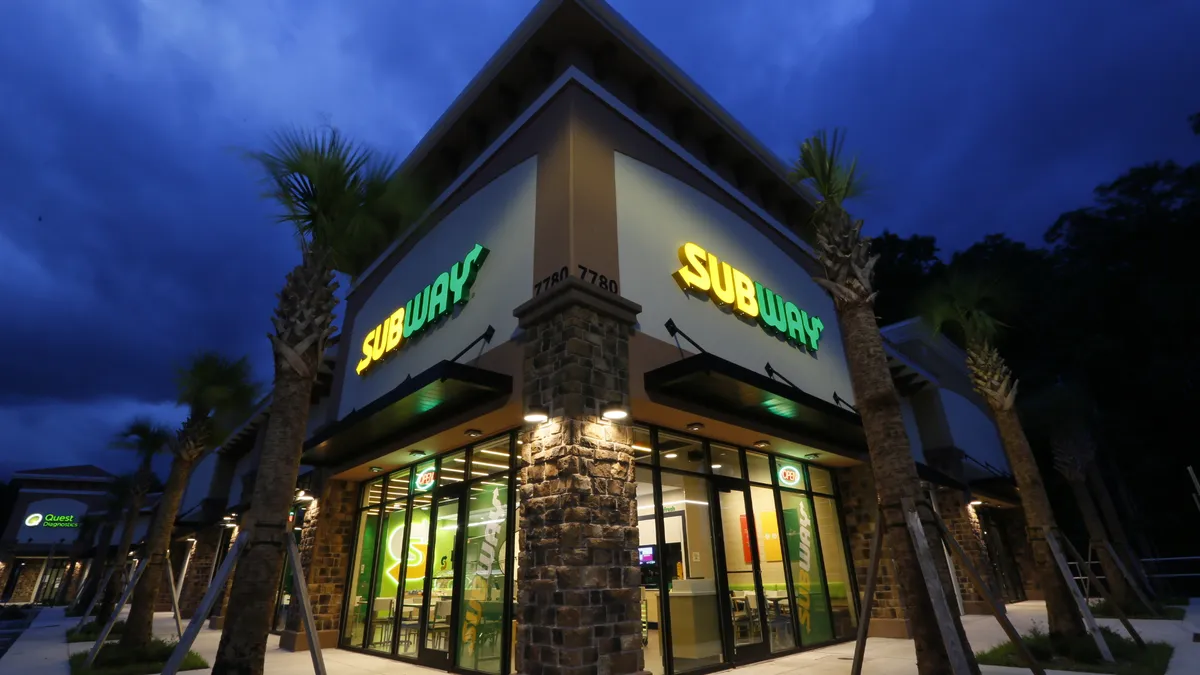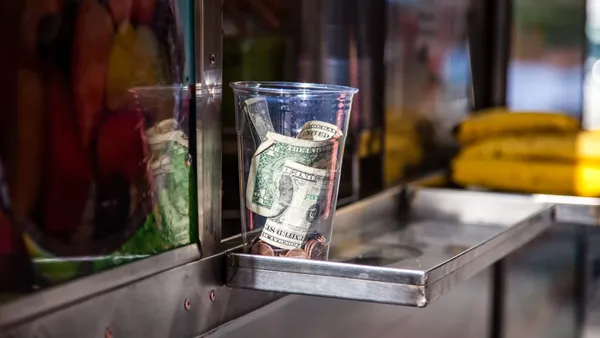Dive Brief:
- Subway has mandated a new policy that requires franchisees who choose not to renew their five-year leases to fill out a questionnaire to help find a replacement to run their restaurants, according to the New York Post. A committee from Subway headquarters will be involved in the process.
- Franchisees also told the Post that the chain has begun enforcing 20-year franchisee agreements — which are generally still active once a five-year lease ends — for the first time in brand history in an attempt to slow store closures.
- "Subway places a tremendous value on its network of small-business owners," a Subway spokeswoman told the Post. "And as such, aims to ensure viable Subway locations remain open. We help franchise owners find buyers for their restaurants whenever possible."
Dive Insight:
Subway's system has been hemorrhaging stores over the past few years, so this move is likely corporate trying to pump the brakes on franchisee exits.
More than 2,300 Subway locations have closed over the past three years, including more than 1,000 last year alone — about double the store closures it forecast. The chain's entire system is franchised, which makes it very vulnerable to operator frustrations, especially with average unit volumes already low at $400,000. In 2016, Subway reported more store closures than openings for the first time in company history. Last year, its U.S. unit count dropped below 25,000 for the first time since 2011, according to the Post.
"The company is coming to its senses and realizing that every store is valuable," a former territory manager told the Post.
Subway told CNN Business earlier this year that it planned to continue store closures as it struggles to grow profitability and adapt to diner demands for healthy menu items and tech-enabled convenience. Franchisees complained in May that corporate was targeting them for minor infractions, such as smudged glass, to shutter stores and restructure the system.
Closing some underperforming stores to reduce market oversaturation and store cannabilization makes sense. But Subway may have overdone it on planned reductions, which could be why it is suddenly doing an about-face to make it harder for franchisees to opt out of operations. The Post reported this spring that Subway initiated 702 arbitrations against U.S. operators in 2017, while McDonald's and Dunkin' only initiated one and two, respectively. Pizza Hut, Burger King and Wendy's didn't initiate any. Subway claimed that these inspections and closures were only carried out to ensure high standards.
Subway's latest franchisee policy hints at a souring relationship with its operators. Like McDonald's, the sandwich chain has also struggled to get franchisees on board with costly, tech-enabled store remodels, and has since offered 5,400 operators grants of $10,000 to help with the remodeling costs. As the brand continues to push for these store overhauls, it will need to take stock of cost to franchisees and other operator policies to keep store owners happy and avoid further financial turmoil.














